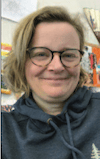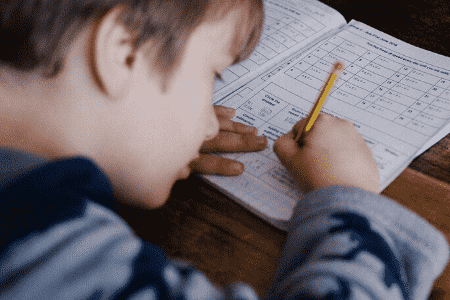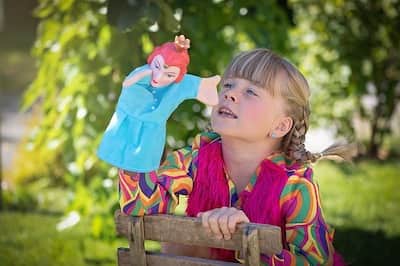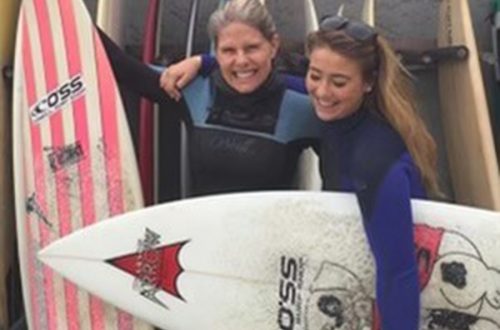How Fast is Too Fast?
Behind the Teacher's Desk: December 2019
By Lisa Catterall
When children create for the world they make it good. When children create for their teacher they make it good enough.
— Rushton Hurley

Lately, I’ve been noticing a lot of tears and upset in my students when it comes to the idea of grades and competition. Teaching at a college preparatory school, I’ve always had a great deal of competition and a fair share of perfectionists in my class. Perhaps I’m just noticing it more.
This year I have a lot of what teachers refer to as “early finishers.” Many teaching resources for younger students, including textbooks, now give advice and extra challenges to satisfy this group of students. Quite often, “early finishers” are showing off and haven’t really done the problems correctly, and all that’s needed is a little push back into the work. Sometimes, though, they are very fast workers or gifted learners. These types of students need more than other students to feed their minds and hold their interest.
When my early finishers openly complain that things are “too easy,” I have no problem taking them aside and reminding them that this type of comment might be a little insensitive towards those who are struggling. But when they legitimately finish early and respectfully ask for more work or come to me to find out what they should do next, they need my support just as much as the student working very slowly.

Some systems answer the problem by ability grouping. This can be very harmful to students’ self-esteem. When we saw that problem happening intensely in middle school mathematics, our solution was to create a very challenging and work-intensive gateway to a higher ability grouping. Any student was welcome to attempt it, and parents were counseled throughout the process. We noticed that student confidence remained intact, and what’s more, students seemed to learn something about themselves in a healthy way; they were empowered rather than victimized by a test score, or the system.
This process was almost impossibly labor-intensive, which just goes to show that education needs more resources at every level if we really want to build free, confident, and powerful citizens. But I’m happy we found something that worked.
Back to students feeling unworthy…In the moment, when it crops up in a spate of tears or upset feelings, all I have to offer is a whole lot of empathy. Although I eventually was published as a biochemist, I felt exactly the way they do when I was sitting in high school chemistry. People in my class were fast, gifted, competitive, and seemed to be sprinting all the time. I’m not sure how I built the resilience to try the subject again in college, except that someone laid it across my path as a biology major.
“Don’t let that feeling define school for you. You can do anything. It’s just fine to take time on your work, and it’s clear to me that you really get it.”
“But there is so much competition. I feel like I’m just failing all the time because I’m always behind, I’m never first.”
How do we help our strong learners in this world when competition, and stakes, seem to be so high for them? I can tell them their work is good enough until I’m blue in the face, but they believe they know more than I do about what is “good enough,” and they’d rather excel at everything.
I just want to stop and give them all a big warm hug and let them see that the path before them is full of light, love, hope, and achievements they can’t even imagine yet. Someday they will hold their first baby right after birth, or they will stand on top of a mountain they’ve climbed, or finish a race, or read a book that changes their entire outlook on life. In the meantime, in their world, there seems to be a void of meaningful moments into which they place the need to achieve to the utmost, all the time.
It’s a reminder to us educators to give them ways to really go out and affect the world they live in in meaningful ways as often as possible rather than simply drilling the fundamentals and preparing them for tests. Community service, service projects, environmental projects, classwork and field trips connecting them to their greater community, ideas that build their view of themselves as world citizens. It’s not easy to create these things in a high school chemistry class. But I’m here because I believe it’s not impossible.
Lisa Catterall teaches STEAM, math, science, and art at Mount Madonna School. She has authored curriculum frameworks for California and Kentucky on arts education as a senior associate of the Centers for Research on Creativity. She is a former middle school director and the founder of a STEAM engineering program. She lectures and trains teachers and administrators on innovation in education in Chaoyang District’s foreign experts program in Beijing, China. After spending 14 years in biotechnology, she began her teaching career as a middle school math teacher in her mid-thirties. Lisa has five children and has lived in Santa Cruz County for most of her life.







